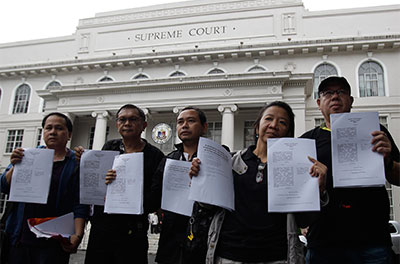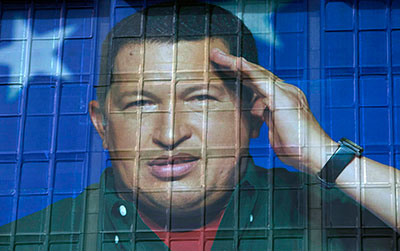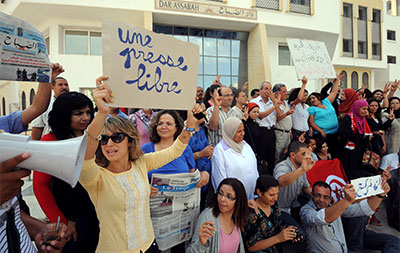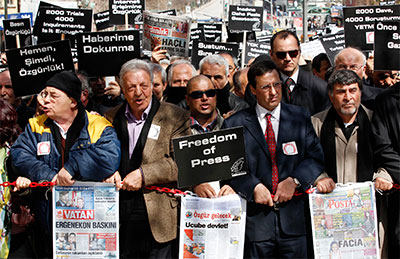
Online in Philippines? Check out #notocybercrimelaw
In a notoriously litigious country like the Philippines, it’s bewildering that the government coupled a law targeting so-called cybercrimes like cybersex, child pornography, identity theft, and spamming with the hoary and over-used concept of libel. And no matter how abusive those crimes may be, it’s an even bigger mystery why the government felt it should suspend…
Ecuador fines newsmagazine over opinion column
Bogotá, October 4, 2012–The Committee to Protect Journalists condemns the exorbitant fine imposed upon a Quito newsmagazine for an opinion column related to a national referendum and urges Ecuadoran authorities to ensure that election regulations are not used to punish outlets for critical coverage.
Iran steps up its campaign against the press
New York, October 3, 2012–In a flurry of new anti-press actions in Iran, a jury has voted to convict a Reuters bureau chief on anti-state charges while authorities have jailed the head of the state’s official news agency, blocked Google services, and shut one reformist newspaper.

Latin American press faces violence, legal harassment
Violence and legal harassment: the two greatest obstacles to press freedom in Latin America today. That’s the message that CPJ Executive Director Joel Simon is delivering this morning in Washington, D.C., at a briefing hosted by Congressman Sam Farr. Farr, a California Democrat, hosts a monthly series looking at emerging trends in the Western Hemisphere.…

Cambodian court sentences journalist to 20 years
New York, October 1, 2012–Cambodian authorities took a significant step backward on press freedom with today’s harsh verdict against independent journalist Mam Sonando in connection with his coverage of land seizures, the Committee to Protect Journalists said today.

Editor sentenced to prison for libel in Italy
Brussels, September 28, 2012–The Committee to Protect Journalists condemns the criminal defamation conviction and 14-month prison sentence handed to Alessandro Sallusti, editor-in-chief of the Milan-based daily Il Giornale, and calls on Italian authorities to reform the country’s defamation laws. On Wednesday, the Fifth Chamber of the Cassation Court, Italy’s highest, upheld an earlier guilty verdict…

Receding hopes for press freedom in Tunisia
These days, press freedom in Tunisia feels ever more distant. Many journalists believed that media freedoms, which were virtually nonexistent under former President Zine el-Abidine Ben Ali, would grow after his ouster. During the aftermath of the December 2010 uprising, an independent press blossomed and special commissions were set up to reform the media sector.…

Vietnam hands three bloggers harsh prison terms
Bangkok, September 24, 2012–The Committee to Protect Journalists condemns the harsh prison sentences handed down today to three prominent Vietnamese online journalists convicted of anti-state charges. In a widening crackdown on press and Internet freedoms, Vietnamese courts have sentenced six journalists and bloggers to prison in the last five weeks.

With new focus on sedition law, India poised at juncture
Although it is the world’s largest democracy, India has retained its colonial-era sedition law. But with a national debate ensuing after the arrest of 25-year-old political cartoonist Aseem Trivedi on the antiquated sedition charge and others, members of the Indian government have been forced to do some soul-searching.

Bewildering Odatv trial continues in Istanbul
In Istanbul, the trial of several suspects in the case of Odatv, an ultranationalist website harshly critical of the government, continues to great consternation. When the case began in early 2011, a dozen journalists were charged, 10 of whom were incarcerated. The prosecution said Odatv staffers, along with prominent investigative reporters Ahmet Şık and Nedim…